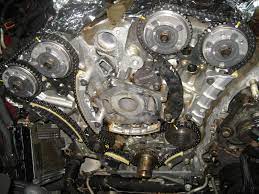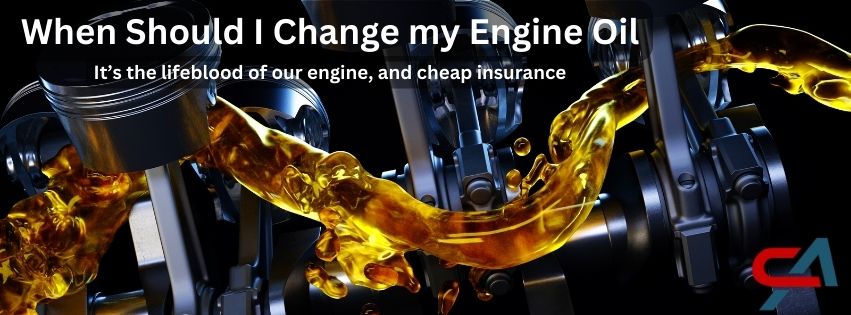Manufacturers boasting “low maintenance” vehicles…
Engine designs have changed and as a result are better. Engine oils needed to catch up to changing demands on the newly designed engines and have improved greatly.
The increasing importance of lower “tail pipe emissions”, and the parts designed to remove them have hugely impacted oil development.
Since the inception of the catalytic converter, anti-scuffing additives in engine oils began to quickly degrade catalytic converters, so they needed to change. Adding insult to injury, the newer engine designs operating with direct injection require a higher level of anti-scuffing properties to protect the high-pressure areas of the engine!
Needless to say, it is a fine balance between engine and oil manufactures; constantly adapting and changing.
Extended oil life monitors
9,000km, 12,000km, 18,000km… I have no idea how many kilometers, the oil change minder came on so I had the oil changed.
Here is what we see on a day-to-day basis.


Above is a 3.6l engine from two different GM vehicles, can you guess which has higher mileage?
If you guessed the one that is all dirty, while an obvious choice; you were incorrect. In fact, the cleaner engine has nearly double the mileage on it. How can this be?!
Originally the vehicle was sold with an oil service interval of 9,000km. This was great for the consumer and easy to sell for the manufacturer, low maintenance, as it were.
A couple of years after production the manufacturer was facing a staggering number of warranty claims for timing chain, and engine failures; all due to oil degradation.
What’s the fix?
Well, after the timing chain or engine was repaired, there was a software update installed into the engine computer changing the oil service interval from 9,000km to 6,000km; future problems solved.
Low maintenance? I think not, a large number of these engines made it beyond the warranty period and the consumer had to shoulder repair costs; you can change a lot of oil for $4000+…
Engine oil, synthetic or conventional can only handle so much. If we use it until it’s had enough, then change it; life is good. But, when wee use it beyond its capacity to properly do its job; life is not good.
Let’s have some fun,
Engine oil is designed to clean and lubricate.
Imagine washing your floors, when you are done the water is dirty; use the same water to wash your floors next week, and the week after that. Eventually the water will be so dirty that when you are mopping the floors you will no longer be cleaning them. One might say you are making them dirtier than they were to start with!
Engine oil is designed to suspend contaminants and carry them away when the oil is drained. Imagine your mop bucket as you slowly fill it with water, eventually the bucket fills and normally you would turn off the water, because the bucket cannot hold any more. But this time you keep filling it, and water begins to spill out no longer contained in the bucket.
You see, the bucket is the oil’s additive package, once they are “full”; they can no longer contain the contaminants and begin to spill them around the engine as sludge.
Every vehicle on the road has a unique wear pattern, it is unique to the driving characteristics and service habits of it’s owner. There is no, “one size fits all” service schedule, however, we see what we see and we know what we know. Based on this, we will make recommendations and always set your next service mileage for 6000km; you decide what is right for you.
Which would you rather have??


